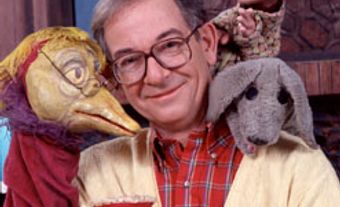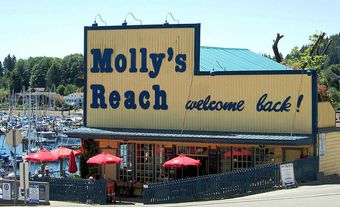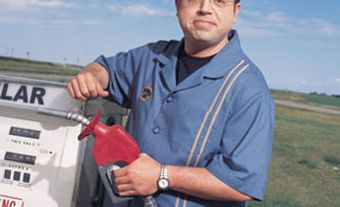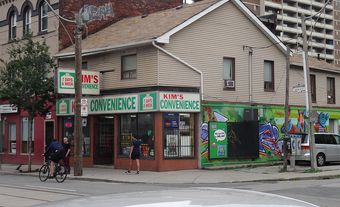The Degrassi franchise — consisting of five separate but interrelated TV series, several TV movies and a webseries of shorts — is Canada’s longest-running dramatic series. Following various Toronto youths and their realistic high school experiences, Degrassi has aired off and on for over 40 years, spanning more than 500 episodes. Praised by many as the most successful example of television franchising in Canadian history, Degrassi is licensed in over 140 countries. It has launched the careers of several Canadian talents, most notably Drake. The franchise has received four Primetime Emmy nominations, two International Emmy Awards, 25 Gemini Awards, 16 Canadian Screen Awards and a Peabody Award. It was inducted into Canada’s Walk of Fame in 2023.

Background
The world of Degrassi began in 1979 when Linda Schuyler, a media studies teacher at Toronto’s Earl Grey Senior Public School, wanted to engage young people with filmmaking. Schuyler created theatre workshops for local kids and experimented in documentary production. However, while making a documentary about immigrant children and racism in Canada, she decided she would rather make films about the daily issues students face than teach them about media.
Inspired by Kay Chorao’s children’s book Ida Makes a Movie, Schuyler and her then-partner Kit Hood founded Playing with Time productions and acquired the rights to the book. Schuyler transformed the cat characters of Chorao’s book into children and used her documentary roots to draw natural performances from young actors in realistic scenarios.
Produced by the National Film Board, Magic Lantern (a video and tech company) and Playing With Time, the film was shot on a shoestring budget, using locations in Toronto’s east end, including the real Degrassi Street and Dundas Street Public School. The school librarian and Schuyler’s friend, Bruce Mackey, assisted Schuyler by ordering books on filmmaking. Mackey’s house at 98 Degrassi Street was used as a primary location, and several of his students served as actors. Mackey, who has been referred to as the “godfather of Degrassi,” also shared many stories and observations about his students that were used in later episodes. (A park off of Degrassi Street was named in his honour in 2003.)
The short film featured Ida (Zoë Newman) making a documentary about garbage for her school film festival. Schuyler insisted that the production feature actors who matched the ages of their characters and that the story placed equal emphasis on education and entertainment. Ida Makes a Movie debuted as a children’s after-school special on the CBC on 20 September 1980.

The Kids of Degrassi Street (1980–86)
The CBC commissioned two more shorts the following year and five more episodes the next. The subject matter of episodes varied as CBC and Playing with Time cobbled together resources to finance the productions. Twenty-six episodes comprised The Kids of Degrassi Street through to 1986, with each commission reflecting its growing success.
These half-hour episodes were conceived as stand-alone, after-school specials about the everyday lives of school-aged children, with the exception of the six-episode arc “The Yearbook” in 1985–86, which used the class’ efforts to publish the yearbook as a connective plotline. The characters all lived on Degrassi Street and attended the same school, while each episode focused on one student. Schuyler and her team sought to create authentic portraits that favoured children’s perspectives, including a refusal to comply with American broadcasters’ request for an elderly character who would solve the kids’ problems with sage advice.
The Kids of Degrassi Street featured several actors that would stay in the Degrassi world for years, including Stacie Mistysyn and Neil Hope. The kids were non-professional actors and many of them simply answered a casting call circulated on flyers in the neighbourhood. The CBC re-aired several episodes on the series Just Down the Street (1982–84). The Kids of Degrassi Street won a Gemini Award and an International Emmy Award for children’s programming.
Degrassi Junior High (1987–89)
After the success of the children’s series, Schuyler and Hood decided to tackle the complexities of adolescence. The Kids of Degrassi Street graduated to Degrassi Junior High in January 1987. Produced by Playing With Time in association with the CBC and Boston PBS affiliate WGBH, Degrassi Junior High was not a direct continuation of The Kids of Degrassi Street,even though it featured several of the same actors. Returning performers were cast as new characters in new situations, and the production drew from a repertory company of about 50 young actors. Degrassi: Junior High was shot on location at Toronto’s Daisy Avenue Public School (later Vincent Massey Public School). Production values improved upon the pseudo-documentary style of The Kids of Degrassi Street and budgets increased substantially, but Degrassi maintained its sitcom-verité style with raw aesthetics that injected a sense of realism.
The class of Degrassi Junior High included Stacy Mistysyn as good girl Caitlin, Pat Mastroianni as class clown Joey Jeremiah, Amanda Stepto as the outrageously-coiffed Spike, Neil Hope as the awkward Wheels and Stefan Brogren as guitarist Snake, who would eventually teach at Degrassi in Degrassi: The Next Generation and become the longest-running regular character.
Degrassi included actors from a variety of backgrounds that reflected Canada’s multicultural make-up, which echoed the CBC mandate to mirror Canadian experiences as well as Schuyler’s effort to represent reality. Among these characters were Vietnamese immigrant Yick Yu (Siluck Saysanasy), Black Canadian BLT (Dayo Ade) and mixed-race student Lucy (Anais Granofsky). Degrassi incorporated diverse experiences into the storylines in order to illustrate social stratifications among the classmates. Schuyler and her team also incorporated the youths’ experiences into the writing by observing how actors matured between seasons, adapting characters or storylines to accommodate changes in confidence, attitude and appearance.
Each episode centred on one character, and the storyline included educational messages within a narrative. Episodes typically ended on a freeze frame of the central character’s face to indicate that he or she had learned something through the experience. No topic was off limits; Degrassi featured candid depictions of puberty, contraception, substance abuse, interracial relationships, homosexuality, infidelity, domestic violence and frank discussions about sexuality.
Degrassi proved controversial internationally; the BBC pulled episodes due to their candid depictions of teen pregnancy and same-sex relationships and aired them in a later time slot on BBC2. One ground-breaking storyline of Degrassi Junior High began in the first-season episode “It’s Late,” in which Spike discovers she is pregnant. She debates putting the child up for adoption but in the end keeps the baby and remains on the show as a teen mom. Motherhood becomes an aspect of her character, and the responsibilities of parenting becomes a theme that was developed throughout the show’s multi-series arc. The episode won an International Emmy.
Due to its thoughtful and honest approach to relatable and topical issues, the series resonated both in Canada and internationally. Degrassi Junior High moved to prime time in its second season and drew an average of 1.2 million viewers on Monday nights at 8:30 p.m. By 1989, Degrassi was broadcast in over 40 countries, including the United States, the UK, Australia, France and China. Ratings were very strong for a youth program, drawing as many as 1.6 million viewers in Canada, 3.5 million in the US and 5.5 million in the UK.
Degrassi High (1989–91)
The third season of Degrassi Junior High ended with Degrassi burning down during the school dance. The idea of the fire was partly a response to the producers’ fears that the show was becoming repetitive. It was also a convenient way to move the students to a new setting as they aged, although several students skipped a grade without the fact being acknowledged in the plot. Degrassi High followed the same group from Degrassi Junior High as they left junior high for high school, culminating with their graduation. (The two series and The Kids of Degrassi Street are sometimes described as “Degrassi Classic,” in contrast to Degrassi: The Next Generation and Degrassi: Next Class.)
Production for Degrassi High moved to Centennial College in Toronto’s east end. The series upped the ante in its subject matter beginning with a two-part episode that saw Erica (Angela Deiseach) have an abortion. The CBC aired the episode unedited, but American broadcaster PBS edited it to remove images of a protest outside an abortion clinic.
Equally significant was the depiction of AIDS in the second season, which began with school bully Dwayne (Darrin Brown) learning that he contracted HIV after having unprotected sex with a young woman. The story allowed Degrassi to educate viewers about HIV/AIDS prevention when the disease was relatively new. The story challenged depictions of AIDS as a “gay disease” by making a heterosexual male the subject. Whereas American series often introduced gay characters for a token AIDS storyline, Degrassi depicted Dwayne living with HIV in a season-long story arc. The final episode of Degrassi High ended with Dwayne and his childhood friend Tabi (Michelle Johnson-Murray) dancing at the school’s semi-formal, indicating that people with HIV/AIDS can lead healthy, productive lives.
School’s Out (1992) and Degrassi Talks (1992)
Degrassi High concluded with the TV movie School’s Out. It featured the Degrassi class readying for graduation, but mostly focused on the latest twist in the relationship of Caitlin and Joey Jeremiah — namely the revelation that Joey grew impatient with Caitlin’s modesty and had sex with Tessa Campanelli (Kirsten Bourne). School’s Out notoriously featured the first use of the F-word in prime time, a first for both Degrassi and the CBC, when Snake and Caitlin confront Joey about cheating on her. Darker and edgier than the typical Degrassi episode, the movie also saw Wheels charged for drunk driving following an accident that kills a two-year-old boy and blinds Lucy. School’s Out drew approximately 2.3 million viewers when it aired on the CBC in January 1992, making it one of the most-watched Canadian TV movies at the time.
The six-episode miniseries Degrassi Talks followed in February 1992.The magazine-style talk show featured the primary cast members travelling the country and taking to teenaged Canadians about some of the issues raised in the show, such as depression, alcohol abuse, sex and drugs. Following Degrassi Talks, Schuyler put Degrassi on hiatus.
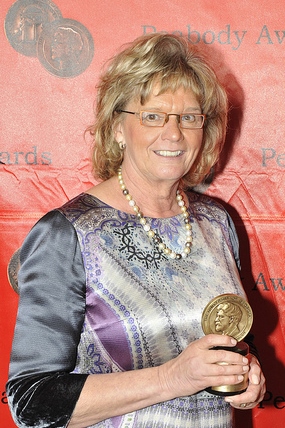
Degrassi: The Next Generation, a.k.a. Degrassi (2001–15)
The Degrassi cast reunited in 1999 for a two-part special on CBC’s Jonovision to see where the actors were at in their lives. This reunion inspired Schuyler and Degrassi writer Yan Moore to reflect on the characters’ journeys. Moore observed that Spike’s daughter Emma would now be entering junior high and suggested continuing the series with a new generation.
Degrassi: The Next Generation moved to CTV with several characters returning as teachers or parents, including those played by Stepto, Mastroianni and Brogren. The series features Spike’s socially-conscious daughter Emma (Miriam McDonald) along with cool girl Paige (Lauren Collins), bipolar abuse survivor Craig (Jake Epstein) and tragic all-star athlete Jimmy, played by future superstar Drake (credited under his birth name, Aubrey Graham). Other notable cast members of Degrassi: The Next Generation include Nina Dobrev as single mom and model Mia, and Shenae Grimes as Darcy, a conservative Christian.
The cast of TNG featured professional actors and was shot in studios rather than on location, giving it a slicker, more polished aesthetic that differentiated it from the earlier Degrassi generation. The new series featured many of the same concerns and themes as Degrassi Classic, such as bullying and teen pregnancy. It also reflected contemporary issues such as sexting, cyber-bullying and transgender rights, while continuing Degrassi’s fearless approach to awkward material, such as Spinner’s (Shane Kippel) humiliating experience of having an erection in class.
Degrassi: The Next Generation took ownership of its ability to court controversy by advertising itself with the tagline “It Goes There.” The show reflected the times with a Columbine-type incident in which Rick (Ephraim Ellis) brings a gun to school and shoots Jimmy (Drake), paralysing him from the waist down. The 2004 two-part episode “Accidents Will Happen” features Manny (Cassie Steele) deciding to have an abortion. Degrassi’s American network The N refused to air the episode, which garnered considerable attention. In 2005, the New York Times praised Degrassi for “confront[ing] controversy in a way that American network television wouldn't dream of” and called it“tha Best Teen TV N da WRLD!”
Degrassi: TNG featured high profile guest appearances by American independent film director and devout Degrassi fan Kevin Smith (Clerks). Smith performed as himself with his frequent collaborator Jason Mewes in a multi-episode arc in which they shoot their film Jay and Silent Bob Go Canadian, Eh! at Degrassi with Alanis Morissette as their fictional principal. The episodes used Smith’s star power to reach a wider audience and let him fulfill his dream of kissing Caitlin Ryan.
This generation of Degrassi expanded with the web series Degrassi Minis (2005–15). These two-to-three-minute shorts feature characters in unique situations outside the school or in alternate, fantasy realities. Other additions to Degrassi included a pair of made-for-TV movies directed by Stefan Brogren: Degrassi Goes Hollywood (2009), which features several characters pursuing careers in Hollywood, and The Rest of My Life: Degrassi Takes Manhattan (2010), about the summer after graduation for the departing cast. For its tenth season, Degrassi: The Next Generation moved to MuchMusic in Canada and TeenNick in the US, and was rebranded with a fresh cast and retitled Degrassi. It moved from MuchMusic to MTV Canada in 2013.
Degrassi: Next Class (2016–17)
Following Degrassi’s 14th season in 2015, it was announced that the series would no longer air on MTV Canada and American broadcaster TeenNick but would return with a new home. When the time came to create the 15th season of Degrassi, Schuyler and her husband, executive producer Stephen Stohn, took stock of Degrassi. They realized the current generation wasn’t alive when Degrassi began and felt that the series no longer reflected the mood of its target audience. They decided to revive the show in a way that spoke to the post-9/11 youths of Generation Z. The writers recalibrated the story arcs to accommodate binge-watching and incorporated social media, including naming episodes after hashtags. They also discarded the long-running custom from The Next Generation of using song names for episode titles.
In June 2015, it was announced that Degrassi would return as Degrassi: Next Class on Family Channel in Canada and on Netflix worldwide (excluding Canada, Australia and France) in January 2016. Next Class featured several continuing cast members from The Next Generation, including Nikki Gould as rebel Grace, Eric Osborne as bisexual Miles, Andre Kim as ladies’ man Winston and Olivia Scriven as the artistic Maya. It also brought a new cast to Degrassi with day-in-the-life depictions of Generation Z teens. Next Class responded to current affairs by introducing two Syrian refugees, Saad (Parham Rownaghi) and Rasha (Dalia Yegavian), in its third season. It also included storylines on Islamophobia, terrorism, racism and Black Lives Matter.
No longer bound by traditional TV schedules, the seasons were made available to stream all at once in January 2016 (season one), July 2016 (season two), January 2017 (season three) and June 2017 (season four). The fourth season ended with the main characters graduating from high school, paving the way for a new class to be introduced in subsequent seasons.

Cancelled HBO Max Series
In January 2022, HBO Max announced that it had greenlit 10 episodes of a sixth Degrassi series. It was to begin shooting in Toronto in summer 2022 for broadcast in 2023. HBO Max also acquired the US rights for Degrassi: The Next Generation and made it available on its streaming service in spring 2022. However, the planned sixth series, which was to feature serialized one-hour episodes, was cancelled in November 2022 amid efforts by new HBO Max owner Warner Bros. Discovery to slash costs.
Impact and Influence
In 2012, the Walrus declared that “Degrassi’s camp value has often overshadowed its cultural significance.” While the cheesy production values and highly disproportionate number of catastrophes per capita sometimes undercut the seriousness of the high school drama, the realism of the style let young viewers relate to the characters and their experiences. Degrassi not only featured taboo material but drew praise for handling it realistically; the kids lived with the consequences of their actions, learning and growing through their experiences in awkward and messy ways. The attention to multiculturalism and diversity was also foundational to inclusive programming at the CBC and other Canadian broadcasters.
Degrassi influenced other Canadian teen dramas such as Madison (1993–98), Ready or Not (1993–97) and Edgemont (2001–05), as well as the American series Beverly Hills 90210 (1990–2000), Dawson’s Creek (1998–2003), Gossip Girl (2007–12) and the rebooted 90210 (2008–13), which starred Degrassi: TNG alumnus Shenae Grimes. However, these American series favoured casts of affluent characters played by older, flashier actors, with low-stakes drama that tended to treat hard-hitting subject matter more sentimentally. These contemporaries influenced Degrassi: The Next Generation, particularly in its casting of actors who were more professional, attractive and fashionable than their predecessors.
American filmmaker Kevin Smith credits Degrassi with inspiring him to present youth culture with a specificity of place and without condescension, simplification or clean endings. Smith initially wanted Stacie Mistysyn to appear in his film Mallrats (1995), but the role eventually went to Beverly Hills 90210 star Shannen Doherty, who wore a Degrassi jacket as part of her costume. Degrassi inspired Smith’s infatuation with Canadiana. References to the show frequently appear in his films, including a name-drop for Degrassi Junior High in the Ben Affleck comedy Chasing Amy (1997).
Honors
Linda Schuyler was named to the Order of Canada and the Order of Ontario for her work with the franchise. Her memoir, The Mother of All Degrassi, was published by ECW Press in 2022.
A poll conducted by the Toronto International Film Festival for Canada’s sesquicentennial in 2017 selected Degrassi Junior High as one of the best television programs in Canadian history. A nationwide reunion tour was also held in 2017 in honour of Degrassi Junior High’s 30th anniversary, withseveral key cast members (including Mastroianni, Mistysyn and Brogren) appearing in cities across Canada.
Select Awards
- Best Children’s Series, Degrassi Junior High (1987)
- Best Direction in a Dramatic or Comedy Series, Degrassi Junior High (1987, 1988)
- Best Performance by a Lead Actor in a Continuing Dramatic Role (Pat Mastroianni), Degrassi Junior High (1988)
- Multiculturalism Award, Degrassi Junior High (1988)
- Best Dramatic Series, Degrassi Junior High (1988, 1989)
- Best Performance by a Lead Actress in a Continuing Dramatic Role (Stacie Mistysyn), Degrassi Junior High (1989)
- Most Innovative Website Competition, Degrassi: The Next Generation (2002, 2003)
- Best Children’s or Youth Fiction Program or Series, Degrassi: The Next Generation (2003)
- Most Popular Website Competition, Degrassi: The Next Generation (2003)
- Best Direction in a Children's or Youth Program or Series (Bruce McDonald), Degrassi: The Next Generation (2003)
- Best Interactive, Degrassi: The Next Generation (2003)
- Best Performance in a Children's or Youth Program or Series (Jake Epstein), Degrassi: The Next Generation (2003)
- Best Children’s or Youth Fiction Program or Series, Degrassi: The Next Generation (2004)
- Best Direction in a Children's or Youth Program or Series (Philip Earnshaw), Degrassi: The Next Generation (2004)
- Best Original Music Score for a Dramatic Series (Jim McGrath), Degrassi: The Next Generation (2006)
- Best Performance in a Children's or Youth Program or Series (Shenae Grimes) Degrassi: The Next Generation (2007)
- Best Children’s or Youth Fiction Program or Series, Degrassi: The Next Generation (2008)
- Best Direction in a Children's or Youth Program or Series (Eleanor Lindo), Degrassi: The Next Generation (2009)
- Best Direction in a Children's or Youth Program or Series (Stefan Brogren), Degrassi: The Next Generation (2010)
- Best Performance in a Children's or Youth Program or Series (Charlotte Arnold), Degrassi: The Next Generation (2010)
- Best Children's or Youth Fiction Program or Series, Degrassi (2011)
- Best Direction in a Children's or Youth Program or Series (Pat Williams), Degrassi (2011)
- Best Performance in a Children's or Youth Program or Series (Jordan Todosey), Degrassi (2011)
- Best Children’s or Youth Fiction Program or Series, Degrassi (2013)
- Best Direction in a Children's or Youth Program or Series (Phil Earnshaw), Degrassi (2013)
- Best Children’s or Youth Fiction Program or Series, Degrassi (2014)
- Best Direction in a Children's or Youth Program or Series (Stefan Brogren), Degrassi (2014)
- Best Performance in a Children's or Youth Program or Series (Dylan Everett), Degrassi (2014)
- Best Writing in a Children's or Youth Program or Series (Ramona Barckert), Degrassi (2014)
- Best Children’s or Youth Fiction Program or Series, Degrassi (2015, 2016)
- Best Direction in a Children's or Youth Program or Series (Phil Earnshaw), Degrassi (2015, 2016)
- Best Performance in a Children's or Youth Program or Series (Aislinn Paul), Degrassi (2015, 2016)
- Best Writing in a Children's or Youth Program or Series (Matt Huether), Degrassi (2015, 2016)
- Best Direction in a Children's or Youth Program or Series (Eleanor Lindo), Degrassi (2017)
- Best Writing in a Children's or Youth Program or Series (Alejandro Alcoba), Degrassi (2017)
Directors’ Guild of Canada Awards
- Outstanding Achievement in a Television Series – Children’s, Degrassi: The Next Generation (2002)
- Outstanding Team Achievement in a Television Series – Children’s, Degrassi: The Next Generation (2003)
- Outstanding Achievement in Direction – Television Series, Bruce McDonald; Degrassi: The Next Generation (2003)
- Outstanding Team Achievement in a Television Series – Family, Degrassi: The Next Generation (2004)
- Outstanding Team Achievement in a Television Series – Family, Degrassi: The Next Generation (2005)
- Television Series – Family, Degrassi: The Next Generation (2008)
Others
- Children & Young People (The Kids of Degrassi Street - “Griff Gets a Hand”), International Emmy Award (1986)
- Prix Jeunesse International, (The Kids of Degrassi Street - “Griff Makes a Date”) (1986)
- Children & Young People (Degrassi Junior High - “It’s Late”), International Emmy Award (1987)
- Outstanding Achievement in Children’s Programming (Degrassi Junior High), Television Critics Association Awards (1987-88)
- Outstanding Drama Series (Degrassi Junior High), Banff Television Festival (1988)
- Prix Jeunesse International (Degrassi High - “Bad Blood”) (1992)
- Outstanding Achievement in Children's Programming (Degrassi: The Next Generation), Television Critics Association Awards (2004-05)
- Choice Summer Series (Degrassi: The Next Generation), Teen Choice Awards (2005)
- Choice Summer TV Show (Degrassi: The Next Generation), Teen Choice Awards (2007)
- Peabody Awards (Degrassi: The Next Generation - “My Body is a Cage”), Peabody Awards (2010)
- Best Series Regular or Leading Actress in a TV Series 16 Years & Over (Dalia Yegavian), Joey Awards
- Children’s Live-Action Category (Matt Huether), Humanitas Prize (2018)
- Best Non-Animated or Mixed Series: Tweens/Teens (Linda Schuyler, Yan Moore), Kidscreen Awards (2018)

 Share on Facebook
Share on Facebook Share on X
Share on X Share by Email
Share by Email Share on Google Classroom
Share on Google Classroom

